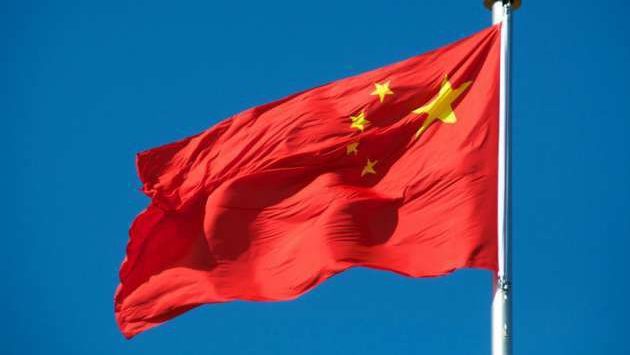China remains a primary human rights concern in 2021, a federal religious freedom commissioner told CNA this week.
“China remains of utmost concern to USCIRF,” said Nadine Maenza, commissioner at the U.S. Commissioner on International Religious Freedom (USCIRF).
The country’s “mass detention of Uyghur Muslims” in Xinjiang is the chief focus of USCIRF in China, Maenza told CNA on Monday. Anywhere from 900,000 to 1.8 million Uyghurs and other ethnic Muslims in the region are estimated to have been detained in more than 1,300 concentration camps there, according to USCIRF. There have been reports of forced labor, indoctrination, beatings, and forced sterilizations at the camps.
Maenza called on the United States and international businesses “to pressure China to end the horrible situation there.”
China’s recent crackdown on pro-democracy advocates in Hong Kong is also a pressing concern, she said, and added that China is “spreading its influence” around the world.
USCIRF is a bipartisan federal commission that promotes religious freedom abroad and reports on religious persecution to the State Department. Commissioners are appointed by both Republican and Democratic members of Congress.
Maenza reported some positive developments for global religious freedom in 2020.
Uzbekistan, she said, is not just promising change but has already released prisoners of conscience and is working with USCIRF and others to loosen its restrictions on religious practice that include mandatory registration of churches.
In Sudan, the interim administration of Prime Minister Abdalla Hamdok has provided “real changes” in the treatment of women and ethnic minorities who “suffered tremendously under the former regime.”
As the year 2021 progresses, there are plenty of areas of concern for international religious freedom, however—including ongoing problems in Iraq and Syria where the Islamic State was defeated in 2017.
“We continue to be concerned about conditions for Christians and Yezidis in the Nineveh Plains and Sinjar,” Maenza said. “It’s remarkable that after all the years and all the money spent, it’s still not a safe place for religious minorities. And, in fact, hardly anything has changed in Sinjar.”
Christians have begun returning to their homes on the Nineveh Plain but have reported security to be of primary concern—so much so that some villages in the area have barely been resettled.
Maenza pointed out that in neighboring Northeast Syria, an autonomous administration provides the safe haven in the region for people to legally change their religion. Yet invasions into the area in 2019 by Turkish and other forces, and the atrocities that ensued— including killings, rapes, forced conversion, destruction of religious sites—have threatened its survival.
In Nigeria, the terror groups Boko Haram and Islamic State West African Province (ISWAP) are terrorizing Christians and Muslims with abductions and executions.
Elsewhere in Asia, ethno-religious nationalism is a concern in countries such as Brunei and India, Maenza said. “India continues to see the government embrace these anti-conversion laws,” she said of the country’s ruling Hindu nationalist party.
As a new administration prepares to take power in the United States, Maenza said that USCIRF commissioners “are hopeful to engage,” and are wishing that the administration “will maintain and will even expand on religious freedom.”
USCIRF also hopes for a quick appointment of the next religious freedom ambassador, she said, with a candidate who is known for working across the political aisle. Maenza also said she hopes the Biden administration will continue appointing a special advisor for international religious freedom at the National Security Council, following the Trump administration’s lead.

